Fred Hutch Clinical Genetics and Genetic Counseling Service
Phone: 206.606.6990
Fax: 206.606.6135
The Clinical Genetics and Genetic Counseling Service at Fred Hutchinson Cancer Center offers cancer risk assessment for people who are at high risk of developing cancer because of their personal history and/or their family medical history.
Genetic testing involves analyzing a sample of your DNA for specific genetic changes. The DNA sample can be taken from blood, saliva or sometimes from a skin biopsy. The decision to have genetic testing is a personal, informed choice.
Our cancer geneticists and genetic counselors are here to help you understand the genetic testing process and whether it is an option for you. If so, we’ll explain how knowing the results can affect you medically and emotionally and how to adapt. We’ll also discuss the impact of sharing your results with your family.
What to Expect During Your First Visit
Before you have genetic testing, you will have a genetic counseling visit. During this visit, you will talk with a cancer geneticist or a licensed, board-certified genetic counselor. Our genetic counselors are specially trained in genetics, counseling and risk assessment, and they will explain the pros and cons of knowing your genetic testing results. Our genetic specialists will review your family medical history and will help you prepare to understand what your test results mean.
If you decide to have genetic testing after you meet with a cancer geneticist or a genetic counselor, we will take a sample of your DNA either through a blood draw, by swabbing the inside of your mouth for a saliva sample, or sometimes through a skin biopsy. Next, we send it to a genetic testing laboratory. After your results come in, we will meet again, over the phone, via telehealth or in person, to discuss what your results mean for your health and your family.
“Some of our patients have family who were diagnosed with young-onset cancer. They’ve wondered if there’s a hereditary reason. When testing confirms this is true, it empowers them, allowing their care team to develop prevention and early detection plans for them.”
— Mercy Laurino, MS, CGC, PhD
Testing the Right Gene
For genetic testing to be helpful, it’s important to test for the correct gene. There are many genes that may make you more likely to develop certain cancers, such as breast, ovarian, colon or uterine cancer. The most commonly tested genes are the BRCA1 and BRCA2 genes. Disease-causing mutations (changes) in these genes have been linked to hereditary breast and ovarian cancer syndrome.
Other cancer syndromes that may also lead to early-onset cancer in a family include Lynch syndrome (HNPCC), familial adenomatous polyposis (FAP), Cowden syndrome (CS) and Li-Fraumeni syndrome (LFS).
At Fred Hutch, all of our genetic counselors are licensed and board-certified and specialize in cancer genetics. Because they focus on cancer genetics, their deep knowledge allows them to offer the best care to our patients.
Multigene Panel Testing
Genetic testing is an exciting and rapidly growing area of medicine, and research continues to give us new insights. For decades, physicians and genetic researchers looked for gene mutations that might cause cancer one at a time, since it was all they knew about. Testing was also limited because it was slow and expensive. Because of these limitations, some patients who could have been helped by knowing their risk of cancer didn’t get tested.
But in 2013, advanced multigene technology was introduced, allowing physicians and researchers to examine dozens of cancer genes at the same time.
It’s important to know that although testing can provide many insights into your possible risk of cancer, the results can also be hard to interpret. Sometimes there is no clear course of action for you to take, because researchers still don’t have enough information to guide people in prevention strategies for several of the genes tested.
This is why it’s essential to work with a skilled genetics counselor who can select the right test for you, help interpret your results and explain all your options so you can make an informed choice.
Other Tests
Many genetic tests are available, including tests that anyone can buy at a local drugstore or online. Those tests are very different from the ones we use. Our tests have been developed in academic laboratories like those from Fred Hutch’s partner organization, UW Medical Center - Montlake. The UW lab has developed, and continues to improve, unique genetic tests for use in understanding inherited cancers. One example is a test for certain blood cancer genes, called the MarrowSeq™ Hereditary Bone Marrow Failure Panel. Our experts will help decide which genetic tests are right for you, interpret your test results and help you move forward.
Inherited Cases of Cancer
Cancer develops when abnormal cells divide and grow without being stopped. Hereditary cancer occurs when a person inherits an altered gene, or gene mutation, from a parent. In some cases, they can be the first person in the family to have the genetic change (de novo).
Learn more about Inherited Cancers.
What Happens After Testing
If you decide to have genetic testing, your results will help us give you prevention and early detection management recommendations. Fred Hutch prevention specialists will recommend high-risk cancer prevention and surveillance (monitoring) options for you.
For example, if a woman tests positive for a disease-causing mutation in the BRCA1 or BRCA2 gene, we may recommend that she get regular cancer screenings to detect cancer early through Fred Hutch’s Breast and Ovarian Cancer Prevention Clinic. After that, she might move to our Women’s Wellness or High-Risk Surveillance Clinic. At these clinics, we might offer her options like preventive surgery or lifestyle changes to reduce her risk of cancer.
Our cancer geneticist or genetic counselor will help you understand what you may be facing once you receive your test results.
Clinical DNA Biobank Program
DNA biobanking is when a small amount of a person’s DNA is stored frozen in a biobank laboratory for future use. The Fred Hutch Clinical DNA Biobank Program provides patients and their families access to a family member’s DNA sample for future clinical genetic testing use. This allows for testing to be done in the future if new tests are developed to check for diseases we cannot currently test for. This also allows for clinical germline testing to be done on the stored DNA sample of a family member with a history of cancer who may no longer be available to provide a sample.
Fred Hutch is the only institution in the Pacific Northwest to offer an adult clinical DNA biobanking program. Established Fred Hutch patients ages 18 and older with a stage IV cancer or metastatic cancer diagnosis are eligible to participate. If you have questions, talk to your care team or genetic counselor, or the biobank coordinator by phone at 206.606.5073 or by email at dnabiobank@fredhutch.org.
Frequently Asked Questions (FAQ)
Genetic Counselors
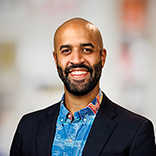
Austin E. Bland, MS, CGC
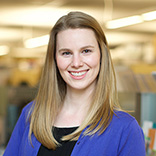
Lauren Brown, MS, CGC
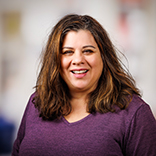
Maria D’Addario, MS, CGC
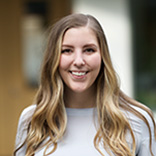
Lauren Facchini, MS, CGC

Cynthia Handford, MSc, CGC, CCGC

Everett Lally, MS, CGC
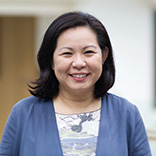
Mercy Laurino, MS, CGC, PhD

Mythili Merchant, MS, CGC
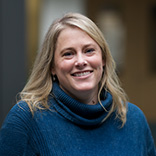
Lorraine Naylor, MS, CGC
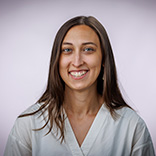
Katie Neimeyer, MS, CGC
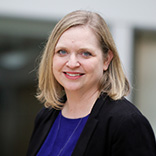
Britta Sjoding, MS, CGC
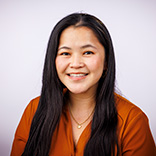
Kari Thorsen, MS, CGC
What Each Team Member Does
Learn about what each team member does.
Cancer Geneticist
Our cancer geneticist is one of the few medical doctors in the U.S. who has trained in preventive medicine, medical oncology and medical genetics. She has experience in using genetic tools to help understand how certain targeted therapies can help patients at high risk of cancer. She considers cancer and risk of cancers from many different angles, and she designs plans for screening, surveillance (monitoring), early detection and prevention for patients who have a higher genetic risk of cancer.
Genetic Counselor
This specially trained health care provider helps you understand your risk of a genetic disorder. A genetic counselor can also determine if genetic testing could be helpful for you, based on your personal and family medical and health history. After you have had genetic testing, a genetic counselor can offer information and resources for prevention; connect you with prevention programs, such as those available at Fred Hutch; and help with testing your family members, based on your results. Fred Hutch Genetic Counseling Service providers are all licensed, board-certified genetic counselors.
Patient Care Coordinator
Your patient care coordinator will likely be one of the first people you meet when you come to Fred Hutch. They will gather your medical records and family health history and help guide you to the appropriate genetics or prevention care services within Fred Hutch.